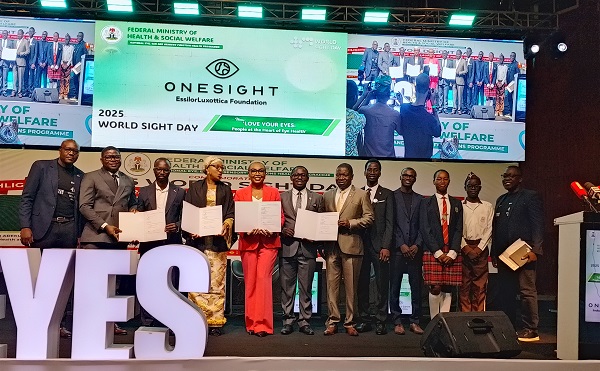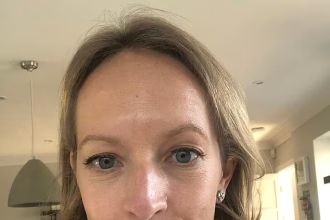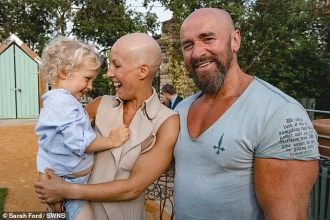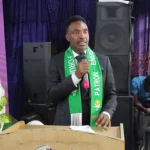By Dele Anofi and Haggai Daniel, Abuja
As part of its renewed commitment to tackling preventable blindness, the federal government plans to distribute five million pairs of free reading glasses within the next three years, it emerged on Thursday.
In addition, the Federal Ministry of Health and Social Welfare has signed a five-year Memorandum of Understanding (MoU) with the OneSight EssilorLuxottica Foundation to strengthen comprehensive eye health services in Nigeria.
The MoU focuses particularly on refractive error treatment and capacity building to improve nationwide access to quality eye care.
The Minister of State for Health and Social Welfare, Dr. Adekunle Salako, revealed these during the 2025 World Sight Day commemoration in Abuja, where he reaffirmed government’s determination to improve eye health and reduce preventable blindness across Nigeria through the integration of Primary Eye Care (PEC) into the Primary Health Care (PHC) system and other targeted interventions.
The initiative, launched under the Effective Spectacle Coverage Initiative Nigeria (ESCIN), also known as Jigibola 2.0, aims to reduce visual impairment caused by uncorrected refractive errors.
Salako explained that refractive errors such as presbyopia remain the most common causes of visual impairment in Nigeria.
He added that ESCIN aligns with the 74th World Health Assembly’s target of increasing global refractive error coverage by 40 percent by 2030, saying, “Investing in eye health today is an investment in Nigeria’s future.
“By prioritizing eye health, we are building a brighter, more productive, and more prosperous nation”d.
Salako, who was represented by the Ministry’s Director of Hospital Services, Dr. Jimoh Salaudeen, emphasized that good vision is central to national development and individual productivity, noting that impaired sight can hinder education, reduce workplace efficiency, and slow economic growth.
Highlighting Nigeria’s global commitments, he recalled that the country joined other UN member states in adopting the General Assembly resolution “Vision for Everyone: Accelerating Action to Achieve the Sustainable Development Goals,” which seeks to end preventable sight loss by 2030.
“Evidence shows that blindness prevention contributes directly to poverty reduction. Following successful cataract surgery, 46 percent of households move up the economic ladder, improving food security and livelihoods,” Salako said.
The Minister outlined key government efforts to strengthen eye health services nationwide, including the development of the National Eye Health Policy (2019) and the National Eye Health Strategic Development Plan (2023–2027), which together provide a framework for expanding eye care delivery at all health levels.
According to him, integrating PEC into PHC services will make eye care more accessible to Nigerians in rural and low-income areas, especially women and the elderly.
“We have trained 12 master trainers across the six geopolitical zones, developed data collection tools for PHC facilities, and enhanced the capacity of primary healthcare workers to manage simple eye conditions and improve referrals,” Salako said.
While presenting the details of the MoU, Raphael Okumu, Associate Director of Partnerships at the OneSight EssilorLuxottica Foundation, Africa Chapter, said the collaboration reflects a shared goal to reduce preventable vision loss through sustainable, community-based eye health programs.
“A pilot phase involving at least three vision centers will assess progress and guide future expansion,” Okumu explained.
Under the MoU, the Foundation will provide equipment, training, and infrastructure support, while the Ministry will offer health facility space, personnel, and regulatory oversight.
The partnership, he said, aims to establish self-sustaining vision centers nationwide and expand access to affordable eye care.
Earlier in her remarks, the Permanent Secretary of the Federal Ministry of Health and Social Welfare, Kachollom Daju, commended eye health professionals and development partners for their dedication and contribution to reducing visual impairment in Nigeria.
Represented by the National Coordinator, National Eye Health Programme at the Federal Ministry of Health Abuja, Dr Oteri Okolo, the Permanent Secretary urged Nigerians to prioritize regular eye check-ups and early detection, warning that vision loss carries serious economic and social consequences, particularly in a youthful and rapidly growing nation like Nigeria.
“I therefore want to use this opportunity to advocate for routine eye exams and greater public awareness on early detection,” she said.
Also speaking at the event, renowned musician and producer, Cobhams Asuquo, advised Nigerians, especially young people to take their eye health seriously, noting that good vision is vital for personal development and societal progress.
World Sight Day, celebrated annually under the auspices of the World Health Organization (WHO) and the International Agency for the Prevention of Blindness (IAPB), aims to raise global awareness about the importance of eye health.


















